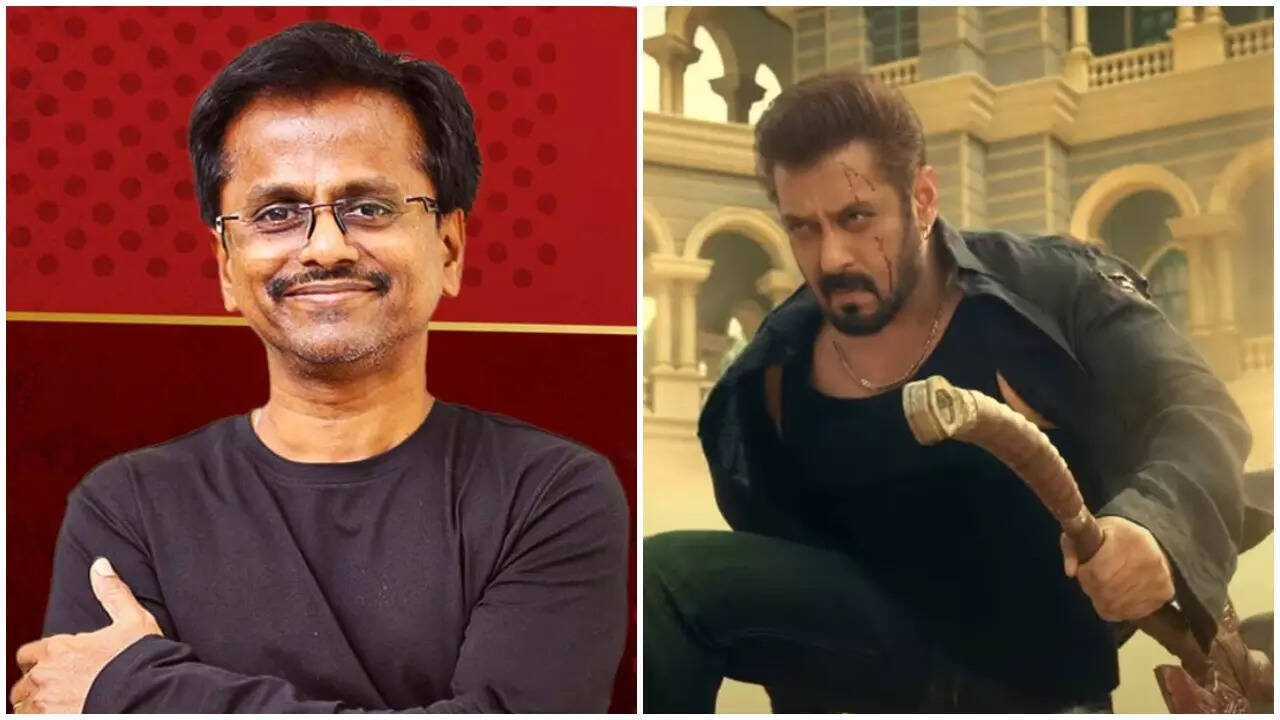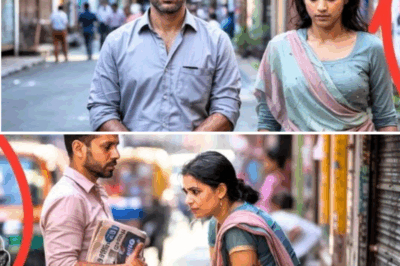South vs Bollywood: Director A.R. Murugadoss Slams Salman Khan’s Attitude, Reveals Hidden Struggles Behind ‘Sikandar

In Bollywood, few names echo with as much power and influence as Salman Khan. The “Dabangg” actor is not just a superstar—he’s a phenomenon. To work with him is the dream of many, but to criticize him, especially publicly, is almost unheard of. For most, challenging Salman Khan is akin to career suicide—a move so drastic that even the bravest rarely attempt it. Yet, not everyone bows to Bollywood’s biggest superstar. In a bold and unexpected move, celebrated South Indian director A.R. Murugadoss has spoken out about the real difficulties of making the high-budget film “Sikandar” with Salman Khan.
Breaking the Silence: Murugadoss Dares What Bollywood Directors Fear
A.R. Murugadoss is no stranger to success or challenges. Known for delivering blockbusters like “Ghajini,” he commands respect across Indian cinema. But his experience with Salman Khan, as revealed in a recent in-depth interview, was nothing short of exasperating. Film insiders and fans alike were shocked when Murugadoss exposed what it truly meant to direct Salman in the much-hyped “Sikandar.” Many had wondered why a director of his caliber couldn’t extract memorable acting or action from an actor like Salman, especially with a lavish budget and massive star power. Now, the answers are coming to light.
Murugadoss did not mince words. He publicly called Salman Khan “careless”—a word rarely used about the superstar, especially by someone who wants to work in Bollywood again. He detailed how Salman’s erratic shooting schedules created chaos on set, sapping the energy and enthusiasm from the team.
Salman’s Midnight Habits: A Nightmare for Cast and Crew?
Salman Khan is known for living life on his own terms, but on the set of “Sikandar,” his habits reportedly led to a logistical nightmare. Murugadoss explained that Salman rarely arrived before 8 PM. “He generally comes to the set only after 8 at night, which forces most of our shoot to take place during the late hours. It’s challenging, especially when you have a cast that includes children,” the director revealed.
Shooting late at night meant that everyone—camera crew, light technicians, supporting actors, and especially child performers—had to adjust to Salman’s schedule. “Sometimes there were scenes involving children, and we had to shoot with them at 2 AM, even if they had just returned from school in the afternoon,” Murugadoss said. The result? Exhausted child actors who often fell asleep between takes and a tired crew struggling to maintain productivity and morale.
According to Murugadoss, Salman’s unpredictable timing didn’t just affect the logistics; it also disrupted the natural flow and chemistry among the cast. “Everyone had to wait for Salman. By the time he arrived and the shooting actually started, most of the team’s energy was already drained,” he added.

A Magnetic Presence With a Heavy Price
Interestingly, Murugadoss also praised certain aspects of Salman Khan’s work ethic. “His energy and dedication, once he is on set, are truly remarkable. Salman transforms into his character instantly, and his screen presence is powerful—there’s no denying his charisma in front of the camera,” the director acknowledged. It’s clear that Khan’s star quality can elevate a scene, but Murugadoss questions whether it’s worth the toll his routines take on the rest of the production.
The director openly admitted that the biggest challenge wasn’t just about filming late nights; it was managing the mounting frustrations within the team. Every actor, he said, suffered from the disrupted routine, and the overall fatigue was visible in the final product. “That is why the film itself appears so tired and uninspired,” he concluded.
A Disappointing Box Office Run and a Doomed Partnership
Despite being shot in grand locations across Mumbai and Hyderabad, “Sikandar” failed to deliver the box office magic everyone expected. The film, mounted on a staggering ₹200 crore budget, managed only ₹182 crore in earnings—a figure that pales in comparison to the enormous expectations placed on a Salman Khan starrer.
For Salman’s legions of fans and Bollywood stakeholders, the underwhelming performance stung. As word spread about turmoil behind-the-scenes, it became clear that not all stories of superstar collaborations have happy endings. “One thing is now certain,” industry watchers note, “Salman Khan and A.R. Murugadoss will not work together again.”
Why South Directors Dare, When Bollywood Stays Silent
What sets Murugadoss apart is his willingness to openly critique the star system—something Hindi filmmakers often avoid for fear of professional backlash. In the South, even icons are questioned and held accountable by their directors, helping the industry to innovate and maintain discipline. Murugadoss’s boldness not only challenges the traditions of Bollywood but also sparks a larger conversation about power dynamics on film sets.
What’s Next for Salman and Murugadoss?
As the dust settles, questions remain about how both men will navigate their careers after “Sikandar.” For Salman, the film is a rare misfire in an otherwise glittering career. For Murugadoss, his honesty might win respect in the South but could create new barriers in Bollywood.
Either way, this episode serves as a reminder of the hidden pressures, untold compromises, and behind-the-scenes tensions that define the filmmaking process—especially in an industry where superstardom sometimes overshadows collaborative spirit.
News
Shefali Jariwala Husband Opens NGO in the name of his wife Shefali Zariwala Rise Foundation
A Legacy of Empowerment: Parag Tyagi Transforms Grief into Action with the Shefali Jariwala Rise Foundation Some tragedies change a…
Midnight Drama, Headlights & Viral Videos: INDIA Bloc’s ‘Vote Adhikar Yatra’ Kicks Off in Bihar Amid Hurdles”
Midnight Drama, Headlights & Viral Videos: INDIA Bloc’s ‘Vote Adhikar Yatra’ Kicks Off in Bihar Amid Hurdles” The much-anticipated INDIA…
Communal Tensions Rise in Rewa: Vandalism and Flag Incident at Century-old Mazaar Sparks Outrage”
Communal Tensions Rise in Rewa: Vandalism and Flag Incident at Century-old Mazaar Sparks Outrage” Incident Overview A disturbing incident in…
DSP’s Viral Reels, a B//urning Body, and Demands for CBI Probe: Unanswered Questions in the Sur Hasda Encounter
DSP’s Viral Reels, a B//urning Body, and Demands for CBI Probe: Unanswered Questions in the Sur Hasda Encounter A recent…
डॉक्टर ने गरीब का किया मुफ्त इलाज, 5 साल बाद जब मरीज मंत्री बनकर लौटा तो अस्पताल में सब कुछ बदल दिया
डॉक्टर ने गरीब का किया मुफ्त इलाज, 5 साल बाद जब मरीज मंत्री बनकर लौटा तो अस्पताल में सब कुछ…
KBC में जीते 1 करोड़, पैसा मिलते ही पत्नी भाग गयी, 1 साल बाद जब वो मिली तो उसकी हालत देखकर होश उड़ गए!
KBC में जीते 1 करोड़, पैसा मिलते ही पत्नी भाग गयी, 1 साल बाद जब वो मिली तो उसकी हालत…
End of content
No more pages to load









